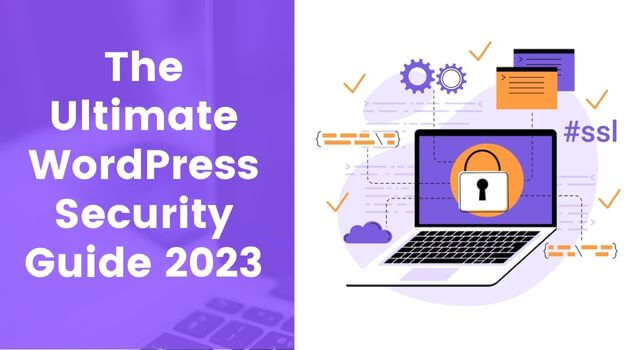
WordPress is the most popular content management system in the world, powering over 40% of all websites on the internet. Unfortunately, this popularity also makes it a prime target for hackers and cybercriminals. As a website owner, it is crucial to ensure that your WordPress site is secure and protected from any potential threats.
In this article, we will provide you with a step-by-step guide to securing your WordPress website, covering everything from basic security measures to more advanced techniques.
Step 1: Keep WordPress Updated
The first and most crucial step in securing your WordPress website is to keep it updated. WordPress releases regular updates that address security vulnerabilities and bugs. By keeping your WordPress site updated, you ensure that any known security vulnerabilities are patched.
To update your WordPress site, simply log in to your WordPress dashboard, and you will be prompted to update if a new version is available.
Step 2: Use Strong Passwords
A weak password is an open invitation for hackers to gain access to your WordPress site. Ensure that you use strong passwords that are difficult to guess. Avoid using common passwords such as “123456” or “password.” Instead, use a combination of upper and lower case letters, numbers, and special characters.
Additionally, it is recommended to use a password manager to generate and store your passwords securely. Some popular password managers include LastPass, 1Password, and KeePass.
Step 3: Use Two-Factor Authentication
Two-factor authentication (2FA) adds an extra layer of security to your WordPress site by requiring an additional authentication method besides a password. This method could be a fingerprint scan, facial recognition, or a code sent to your mobile phone.
There are several plugins available for WordPress that offer 2FA functionality, such as Google Authenticator and Two-Factor. By implementing 2FA, you can prevent unauthorized access to your WordPress site, even if someone manages to obtain your password.
Step 4: Limit Login Attempts
Another common way that hackers try to gain access to your WordPress site is by attempting to guess your login credentials. To prevent this, you can limit the number of login attempts allowed on your WordPress site.
There are several plugins available that can help you limit login attempts, such as Login LockDown and WP Limit Login Attempts. These plugins restrict the number of login attempts from a specific IP address, after which the user is locked out of the site for a specific time.
Step 5: Install a WordPress Security Plugin
There are several WordPress security plugins available that can help you protect your site from various threats. Some popular security plugins include Wordfence Security, Sucuri Security, and iThemes Security.
These plugins offer features such as malware scanning, firewall protection, and brute force attack prevention. Additionally, they can also help you monitor your WordPress site for any suspicious activity and notify you if any security threats are detected.
Step 6: Use HTTPS
HTTPS (Hyper Text Transfer Protocol Secure) is an encrypted version of HTTP that offers a secure connection between the user’s browser and the web server. By using HTTPS, you ensure that any data transmitted between the user’s browser and your website is encrypted and cannot be intercepted by hackers.
To use HTTPS on your WordPress site, you need an SSL (Secure Sockets Layer) certificate. Most web hosting providers offer free SSL certificates, and you can also purchase them from various SSL providers.
Step 7: Keep Your WordPress Site Clean
Keeping your WordPress site clean is essential for ensuring its security. This involves regularly deleting any unused themes or plugins, as they can provide a potential entry point for hackers.
Additionally, it is also recommended to remove any inactive users and ensure that all active users have the correct permissions. You should also regularly backup your WordPress site, so you can easily restore it if anything goes wrong.

